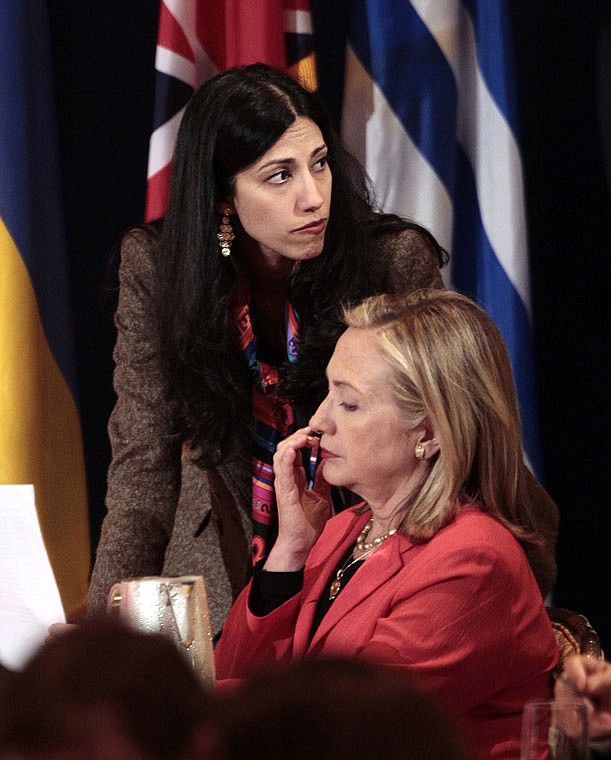WASHINGTON (AP) - Longtime Hillary Clinton aide Huma Abedin said in a legal proceeding that Clinton did not want the State Department emails she sent and received on her private computer server to be accessible to "anybody," according to transcripts released Wednesday. Her comments provided new insights into the highly unusual decision by the presumptive Democratic presidential candidate to operate a private email server in her basement to conduct government business as secretary of state.
Abedin also said under oath she was not aware whether Clinton personally deleted any emails during her tenure as secretary.
Abedin told lawyers for the conservative group Judicial Watch in a deposition Monday she could not recall whether she or Clinton discussed with any State Department officials Clinton's use of her server exclusively for government business. Abedin was Clinton's deputy chief of staff at the State Department, now works with Clinton's president campaign and often travels with the candidate. Abedin used an email account on Clinton's server occasionally for government business, although Abedin also used a government address.
"I assumed it was OK to do," she testified.
Abedin is one of several former State Department officials who are being deposed by the conservative group in a civil lawsuit over the agency's failure to turn over files under the Freedom of Information Act. A transcript of the proceeding was released by Judicial Watch on Wednesday.
Judicial Watch lawyers repeatedly pressed Abedin to explain Clinton's concern expressed to her in a November 2010 message that her emails might become public, but the longtime aide insisted Clinton's interest in wanting to keep her correspondence from being exposed was similar to any private citizen's.
"I would imagine anybody who has personal email doesn't want that personal email to be read by anybody else," Abedin explained. "I read it the same way as she has written it."
Clinton's emails contained tens of thousands of work-related emails as well as private messages, and she turned over nearly 33,000 business-related messages while retaining and deleting about the same number of messages. Among the emails she did not turn over was a November 2010 email discussing her concerns about the risk of the "personal being accessible."
The deposition also raised questions about the State Department's practices responding to government records requests under the U.S. Freedom of Information Act. Abedin, a senior aide during Clinton's entire tenure there, testified under oath that she never searched or was asked to search for documents in her State Department or her private Clinton email accounts in response to requests or lawsuits under the open records law.
But a review of all requests to the State Department during that period found several asking specifically for copies of Abedin's emails on a variety of subjects, including her husband, one-time disgraced Rep. Anthony Weiner.

